The dark story of Prison Architect
"This is prisons, this is not the world you're used to."
Prison Architect may look cute but the campaign content is not: build an execution chamber and send a man to his death - a man who's tale of murder and repent will challenge your beliefs and leave a lasting impression.
And that's just chapter one.
"It definitely starts on a dark note," creator Chris Delay told me. "I wanted it to start on a very dark note. I wanted you to feel a real shock of arrival in a different world when you first start playing Prison Architect.
"This is prisons, this is not world you're used to. You're not going to build an army and then attack an enemy base. This is much more morally grey than all of that. And the first chapter is probably the darkest of them all.
"We haven't made the later chapters yet," he added, "so who knows what foul mood I'll be in when I come to write the later chapters! But I imagine that will be as dark as it gets."

Originally Prison Architect had no story, no campaign. It was a sandbox only. Introversion bolted the story on as a tutorial - a brief tutorial.
"But as we put the game in front of people, friends and family, there was a real connection formed with Edward, the character who finds himself in the electric chair. And that was something we wanted to explore further," Mark Morris, the other half of Introversion and the business brain, explained.
"So Chris and I sat down with - it was quite good fun actually: we had the old post-it notes out with all of the things we needed to hit, these emotional themes, the themes within prison that we wanted to touch on. So obviously Death Row is one of them, but things like the prison industrial complexes is another one; prisoner riots. All of these sorts of things we need to, I believe, make some kind of commentary on within the game.
"So we've tried to create a structure now of stories that touch on these different prison themes, touch on some kind of ethical decision making for the player and also introduces new game systems. We have the spider framework, if you like, of what we need to achieve in each chapter. But they're not written yet."
Neither Chris Delay nor Mark Morris has ever been locked up in prison. They know what research and popular culture tells them. But the more they learned, the more they realised how thorny the real and serious world of prisons was. And then they started to worry.
"The worst criticism we would face is if we had made light of an issue."
Mark Morris
"We became aware pretty quickly after Prison Architect was announced that prisons are a quite contentious issue," said Morris. "Certainly in the States people have very different views on prisons than Chris or I potentially have.
"So we realised we needed to get some consultancy in on the project to make sure that we had knowledge, actual knowledge, from people, from individuals that were in prison and could say, 'Right, this is totally nonsense.' And we might go, 'OK it's a game, we're still going to leave that in,' but we wanted to be made aware of it.
"We have got in touch with - we're not announcing who they are yet because we're still figuring it out - ex-prisoners, convicts and also prison staff," Morris revealed, "and are engaging with them, letting them play the game, letting them tell us what they think about it and using their expertise to assist us to make sure we're not being glib.
"The worst criticism we would face is if we had made light of an issue," he added, "which doesn't mean we need to tackle everything in a hugely serious manner."

So on the mark will Prison Architect be, that Morris believes actual prison wardens and prison officers will play it when it's done. "Because if we get it right hopefully they will enjoy it," he said.
"Probably part of our marketing campaign when we launch it will be to go send it off to prisons. My favourite part of Defcon was when I got an email from a lieutenant in the US navy aboard a nuclear submarine wanting a copy to take on his next deployment. So we knew that Defcon was being played under the water. Hopefully we'll have something similar regarding prison wardens.
The Prison Architect sandbox is the main part of the paid alpha, which you can pay to play now. We've written about how it can be a confusing beast, and that's partly because Introversion intends to explain and introduce big features through the story campaign. Whole chapters will be based around them, and Delay hinted at rehabilitation, education, industry and "hardcore right-wing security" themes.
"The list of big systems we still have to write are all tied to the story that we want to tell in the campaign," Chris Delay explained. "It's all sort of fallen out of that.
"We've got a certain number of chapters and they require a certain number of features. One of the chapters is going to be all about the prison industrial complex and it will require a series of new systems to be written that will govern how prisons work and how they perform industry and what happens during that. But it's all in service of that main plot-line.
"By the end," he added, "you're learning about the much much higher level, much harder concepts like industry or rehabilitation or education or really hardcore right-wing security. Those are the much harder concepts that come much later in the story."
Prison Architect costs $30 to play in alpha form now. Obviously that buys you the full game whenever it's ready, and the uptake to the paid alpha so far has been strong - over $100,00 was raised in 72 hours. That means Introversion can relax, bring on extra help if needed and finish the game to a really high standard. It also means the thousands of alpha players can feedback about things Introversion may have overlooked. It's a business model really suited to Introversion, and it should result in the British developer's best work yet.


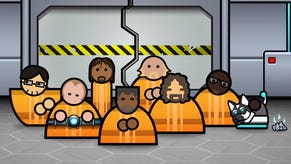
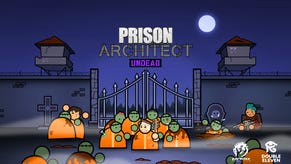
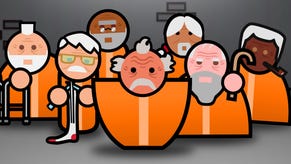
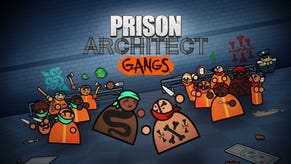

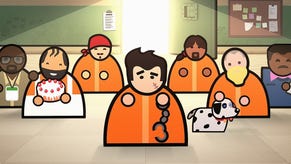

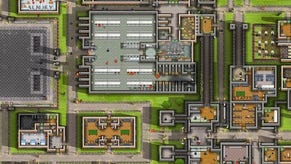






.png?width=291&height=164&fit=crop&quality=80&format=jpg&auto=webp)
